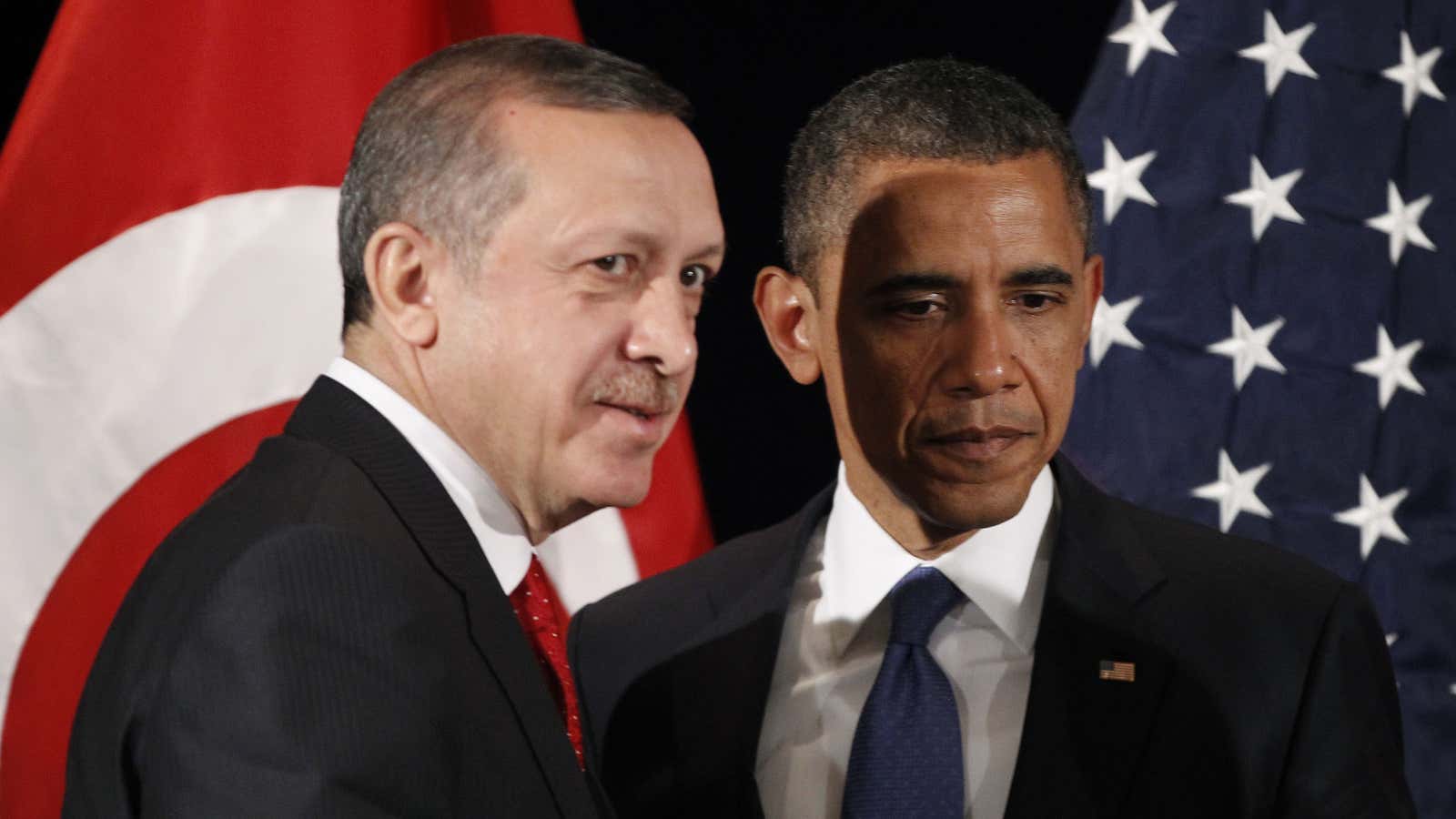Today, Apr. 24, marks the centenary of the Armenian genocide—what the Armenian government describes as the systematic killing of more than 1.5 million minority ethnic-Armenians living within the Ottoman Empire during the First World War (1915).
The Turkish government objects to the use of the term “genocide,” arguing that many people of various ethnicities were killed in the chaos of war. It remains a major point of contention between the two countries. Turkey has called for a panel of impartial historians to reevaluate records and formulate an official summation of events—but most reputable historians are already in agreement: ethnic Armenians were targeted in a pre-meditated, governmentally sanctioned campaign over suspicions of cooperating with the Russians during the war; and for being a generally prosperous group within the Ottoman state, at the perceived expense of ethnic Turks.
Many experts think of it as the first genocide of the 21st century.
US president Barack Obama has apparently come down on the side of Turkey on this matter. Despite a 2008 campaign promise to “recognize the Armenian genocide,” the White House is being extremely careful about the language it employs when broaching the anniversary. The administration released a statement on Apr. 21, but abstained from referring to the killings as genocidal, in obvious deference to Ankara, one of the US’s most strategically valuable allies in the Middle East.
“We are deeply disappointed president Obama has chosen to break his promise and stand apart from the global community on speaking the truth about the Armenian genocide on its 100th anniversary,” representatives of the Armenian Genocide Centennial Committee of America (AGCCA) wrote in a statement released Apr. 24. “From Pope Francis, Germany, and Austria to Israeli president Rivlin and the European Parliament, world leaders joined together this month to call the Armenian genocide by its proper name: a genocide. Sadly, the president again joined the ranks of American leaders who turn a blind eye to genocide for political expediency.”
“We know and respect that there are some who are hoping to hear different language this year,” a White House official told reporters. “We understand their perspective, even as we believe that the approach we have taken in previous years remains the right one—both for acknowledging the past, and for our ability to work with regional partners to save lives in the present.”
But there’s little tangible support to the idea that recognition of the genocide really has any adverse affects on relations with Turkey. A number of the country’s largest trading partners—including Russia, Germany, and Iran—officially or partially recognize the 1915 killings as a genocide.
Recognition of genocide among Turkey’s top trade partners
Data: MIT Observatory of Economic Complexity
Trade between the countries remains vibrant. Most governments within the European Union, which is by and large Turkey’s largest import-export partner, have passed national resolutions not just recognizing the genocide, but going so far as to declare it illegal to deny it.
Turkish president Recep Tayyip Erdogan will undoubtedly grumble and grouse should Obama choose to explicitly recognize the Armenian genocide. But it’s not likely the US would lose out on military or economic opportunities in Turkey as a result. To where would Ankara turn? Putin? As mentioned, Russia has already formally recognized the genocide. Its Arab neighbors? Most are already allied with the United States. Iran? That would be a lonely partnership. And given that the provincial government of Tehran has already recognized the genocide, it’s conceivable that the national government could be close behind.
It’s admittedly somewhat shameful that Turkish leaders have strong-armed the White House into submitting on this issue. The United States is home to the third-largest Armenian community in the world. Many of its constituents are descended from those who fled genocide in post-war Anatolia. This dishonest language—all to soothe the egos of revisionists in Ankara—is an inexcusable affront to those who expect human-rights leadership from a president who has won the Nobel Peace Prize.
“The American descendants of the 1.5 million Armenians systematically murdered by Ottoman Turkey 100 years ago deserve better leadership from their president,” the AGCCA statement reads. “There can be no doubt that when history looks back on president Obama’s legacy, this broken promise and his failure to stand for truth and justice will reflect poorly.”
